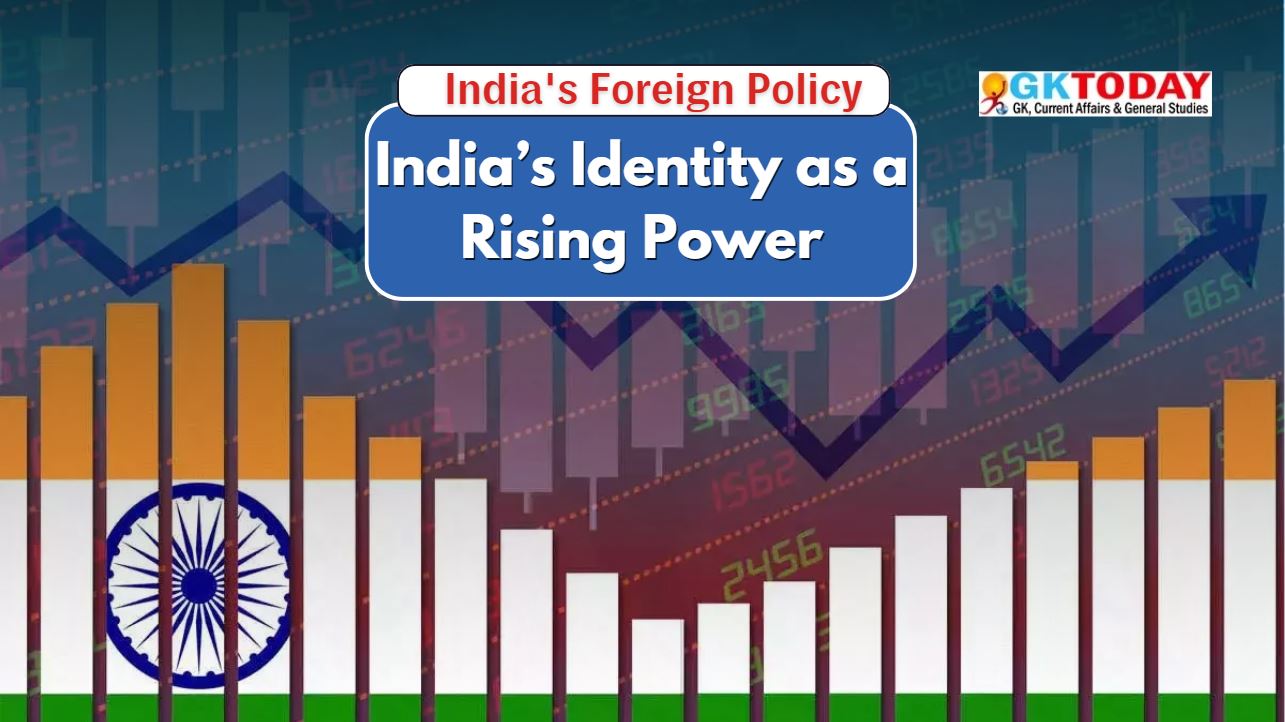India’s Foreign Policy – India’s Identity as a Rising Power
India’s foreign policy reflects its identity as a rising power. This identity is shaped by historical contexts, economic growth, military strength, geopolitical influence, and soft power. India navigates various challenges while pursuing its strategic interests on the global stage.
Historical Context
India’s foreign policy has evolved since its independence in 1947.
Post-Independence (1947)
India adopted a non-aligned stance, prioritising sovereignty and independence. This approach allowed India to maintain relations with both Western and Eastern blocs during the Cold War.
Economic Liberalisation (1991)
The economic reforms initiated in 1991 marked a turning point. India shifted towards a more open economy, encouraging global engagement. This transformation facilitated increased foreign investment and trade, enhancing India’s position in the global economy.
Economic Growth
India’s economic trajectory has been remarkable since the 1990s.
GDP Growth
India has experienced an average GDP growth rate of around 6-7%. This consistent growth has positioned India as the fifth largest economy in the world as of 2021.
Global Trade
India is a major player in global trade. It is exporter of IT services, textiles, and pharmaceuticals. These sectors contribute substantially to India’s foreign exchange reserves and employment.
Military Strength
India’s military capabilities tell its status as a rising power.
Military Personnel
India possesses the third largest military in the world by personnel. This strength is very important for national security and regional stability.
Nuclear Power
India declared itself a nuclear power in 1998 with the Pokhran-II tests. This status enhances its strategic deterrence and influences regional dynamics.
Defense Budget
India’s defense budget was approximately $70 billion in 2021-2022. This investment reflects the country’s commitment to modernising its armed forces and enhancing operational readiness.
Geopolitical Influence
India’s role in global geopolitics is increasingly .
Membership in International Organisations
India is an active member of several international organisations, including BRICS, G20, Shanghai Cooperation Organisation (SCO), and ASEAN. These memberships provide platforms for multilateral cooperation and dialogue.
Strategic Partnerships
India has forged strategic partnerships with key global players. Notable partnerships include the United States for defence and trade, Russia for historical ties, and Japan for economic cooperation.
Regional Security
India engages in regional security initiatives, focusing on counter-terrorism and maritime security in the Indian Ocean. This engagement is crucial for maintaining stability in a volatile region.
Soft Power
India’s soft power complements its hard power.
Cultural Diplomacy
Cultural elements like Bollywood, yoga, and Indian cuisine are tools of influence. They enhance India’s global image and encourage people-to-people connections.
The Indian Diaspora
With over 30 million Indians living abroad, the diaspora plays role in India’s global influence. They contribute to economic links and cultural exchanges.
Humanitarian Aid
India extends humanitarian aid and development assistance to neighbouring countries. This approach strengthens diplomatic ties and enhances India’s image as a responsible global player.
Challenges to Identity as a Rising Power
India faces several challenges that impact its identity.
Internal Issues
Poverty, inequality, and communal tensions persist. These internal challenges can undermine India’s stability and development.
Regional Tensions
India’s relations with Pakistan and China are marked by border disputes and historical animosities. These tensions complicate India’s foreign policy and security strategies.
Global Perception
India grapples with balancing its identity as a developing nation with that of a rising power. This perception influences international relations and trade negotiations.
Foreign Policy Strategies
India employs various strategies to navigate the global landscape.
Act East Policy
The Act East Policy aims to strengthen ties with Southeast Asian nations. This approach enhances economic and strategic cooperation in the region.
Neighborhood First Policy
India’s Neighborhood First Policy focuses on improving relations with neighbouring countries within the South Asian Association for Regional Cooperation (SAARC). This strategy promotes regional stability and cooperation.
Strategic Autonomy
India maintains strategic autonomy in its foreign policy decisions. This independence allows India to engage with multiple global powers without aligning exclusively with any.
Global Issues Engagement
India actively engages with global issues that impact its interests.
Climate Change
India is committed to addressing climate change. It has pledged to uphold the Paris Agreement and invest in renewable energy initiatives.
Global Health
During the COVID-19 pandemic, India played important role in vaccine diplomacy. It supplied vaccines to numerous countries, showcasing its commitment to global health.
Counter-Terrorism
India participates actively in global counter-terrorism forums. This engagement puts stress on its commitment to combating terrorism and enhancing international security.
Future Prospects
India’s future as a rising power holds potential.
Vision for 2047
India aims to become a $5 trillion economy by 2047. This ambitious target reflects the government’s commitment to economic growth and development.
Technology and Innovation
The Digital India initiative emphasises technology and innovation. This focus aims to drive economic growth and improve public services.
Global Governance Reforms
India has the potential to play a leading role in global governance reforms. Its growing influence can contribute to a more equitable international order.


